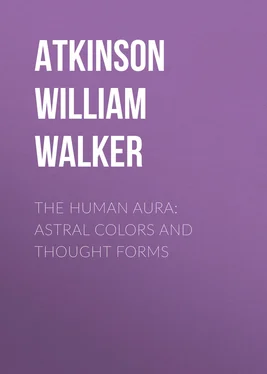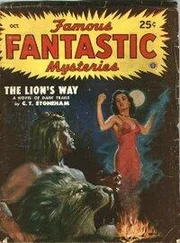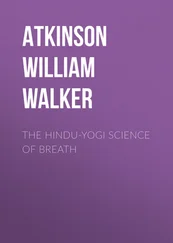William Atkinson - The Human Aura - Astral Colors and Thought Forms
Здесь есть возможность читать онлайн «William Atkinson - The Human Aura - Astral Colors and Thought Forms» — ознакомительный отрывок электронной книги совершенно бесплатно, а после прочтения отрывка купить полную версию. В некоторых случаях можно слушать аудио, скачать через торрент в формате fb2 и присутствует краткое содержание. Жанр: foreign_prose, foreign_religion, Философия, foreign_psychology, foreign_antique, на английском языке. Описание произведения, (предисловие) а так же отзывы посетителей доступны на портале библиотеки ЛибКат.
- Название:The Human Aura: Astral Colors and Thought Forms
- Автор:
- Жанр:
- Год:неизвестен
- ISBN:нет данных
- Рейтинг книги:4 / 5. Голосов: 1
-
Избранное:Добавить в избранное
- Отзывы:
-
Ваша оценка:
- 80
- 1
- 2
- 3
- 4
- 5
The Human Aura: Astral Colors and Thought Forms: краткое содержание, описание и аннотация
Предлагаем к чтению аннотацию, описание, краткое содержание или предисловие (зависит от того, что написал сам автор книги «The Human Aura: Astral Colors and Thought Forms»). Если вы не нашли необходимую информацию о книге — напишите в комментариях, мы постараемся отыскать её.
The Human Aura: Astral Colors and Thought Forms — читать онлайн ознакомительный отрывок
Ниже представлен текст книги, разбитый по страницам. Система сохранения места последней прочитанной страницы, позволяет с удобством читать онлайн бесплатно книгу «The Human Aura: Astral Colors and Thought Forms», без необходимости каждый раз заново искать на чём Вы остановились. Поставьте закладку, и сможете в любой момент перейти на страницу, на которой закончили чтение.
Интервал:
Закладка:
William Walker Atkinson
The Human Aura: Astral Colors and Thought Forms
CHAPTER I.
WHAT IS THE HUMAN AURA?
The above question is frequently asked the student of occultism by some one who has heard the term but who is unfamiliar with its meaning. Simple as the question may seem, it is by no means easy to answer it, plainly and clearly in a few words, unless the hearer already has a general acquaintance with the subject of occult science. Let us commence at the beginning, and consider the question from the point of view of the person who has just heard the term for the first time.
The dictionaries define the word aura as: "Any subtle, invisible emanation or exhalation." The English authorities, as a rule, attribute the origin of the word to a Latin term meaning "air," but the Hindu authorities insist that it had its origin in the Sanscrit root Ar , meaning the spoke of a wheel, the significance being perceived when we remember the fact that the human aura radiates from the body of the individual in a manner similar to the radiation of the spokes of a wheel from the hub thereof. The Sanscrit origin of the term is the one preferred by occultists, although it will be seen that the idea of an aerial emanation, indicated by the Latin root, is not foreign to the real significance of the term.
Be the real origin of the term what it may, the idea of the human aura is one upon which all occultists are in full agreement and harmony, and the mention of which is found in all works upon the general subject of occultism. So we shall begin by a consideration of the main conception thereof, as held by all advanced occultists, ancient and modern, omitting little points of theoretical variance between the different schools.
Briefly, then, the human aura may be described as a fine, ethereal radiation or emanation surrounding each and every living human being. It extends from two to three feet, in all directions, from the body. It assumes an oval shape—a great egg-shaped nebula surrounding the body on all sides for a distance of two or three feet. This aura is sometimes referred to, in ordinary terms, as the "psychic atmosphere" of a person, or as his "magnetic atmosphere."
This atmosphere or aura is apparent to a large percentage of persons in the sense of the psychic awareness generally called "feeling," though the term is not a clear one. The majority of persons are more or less aware of that subtle something about the personality of others, which can be sensed or felt in a clear though unusual way when the other persons are near by, even though they may be out of the range of the vision. Being outside of the ordinary range of the five senses, we are apt to feel that there is something queer or uncanny about these feelings of projected personality. But every person, deep in his heart, knows them to be realities and admits their effect upon his impressions regarding the persons from whom they emanate. Even small children, infants even, perceive this influence, and respond to it in the matter of likes and dislikes.
But, human testimony regarding the existence and character of the human aura does not stop with the reports of the psychic senses to which we have just referred. There are many individuals of the race—a far greater percentage than is generally imagined—who have the gift of psychic sight more or less developed. Many persons have quite a well-developed power of this kind, who do not mention it to their acquaintances for fear of ridicule, or of being thought "queer." In addition to these persons, there are here and there to be found well-developed, clear-sighted, or truly clairvoyant persons, whose powers of psychic perception are as highly developed as are the ordinary senses of the average individual. And, the reports of these persons, far apart in time and space though they may be, have always agreed on the main points of psychic phenomena, particularly in regards to the human aura.
To the highly developed clairvoyant vision, every human being is seen as surrounded by the egg-shaped aura of two or three feet in depth, more dense and thick in the portion nearest the body, and then gradually becoming more tenuous, thin and indistinct as the distance from the body is increased. By the psychic perception, the aura is seen as a luminous cloud—a phosphorescent flame—deep and dense around the centre and then gradually shading into indistinctness toward the edges. As a matter of fact, as all developed occultists know, the aura really extends very much further than even the best clairvoyant vision can perceive it, and its psychic influence is perceptible at quite a distance in many cases. In this respect it is like any flame on the physical plane—it gradually fades into indistinctness, its rays persisting far beyond the reach of the vision, as may be proved by means of chemical apparatus, etc.
To the highly developed clairvoyant vision, the human aura is seen to be composed of all the colors of the spectrum, the combinations of colors differing in various persons, and constantly shifting in the case of every person. These colors reflect the mental (particularly the emotional) states of the person in whose aura they are manifested. Each mental state has its own particular combination formed from the few elementary colors which represent the elementary mental conditions. As the mind is ever shifting and changing its states, it follows that there will ever be a corresponding series of shifting changes in the colors of the human aura.
The shades and colors of the aura present an ever changing kaleidoscopic spectacle, of wonderful beauty and most interesting character. The trained occultist is able to read the character of any person, as well as the nature of his passing thoughts and feelings, by simply studying the shifting colors of his aura. To the developed occultist the mind and character become as an open book, to be studied carefully and intelligently.
Even the student of occultism, who has not been able to develop the clairvoyant vision to such a high degree, is soon able to develop the sense of psychic perception whereby he is able to at least "feel" the vibrations of the aura, though he may not see the colors, and thus be able to interpret the mental states which have caused them. The principle is of course the same, as the colors are but the outward appearance of the vibrations themselves, just as the ordinary colors on the physical plane are merely the outward manifestation of vibration of matter.
But it must not be supposed that the human aura is always perceived in the appearance of a luminous cloud of ever-changing color. When we say that such is its characteristic appearance, we mean it in the same sense that we describe the ocean as a calm, deep body of greenish waters. We know, however, that at times the ocean presents no such appearance, but, instead, is seen as rising in great mountainous waves, white capped, and threatening the tiny vessels of men with its power. Or again, we may define the word "flame" in the sense of a steady bright stream of burning gas, whereas, we know only too well, that the word also indicates the great hot tongues of fiery force that stream out from the windows of a burning building, and lick to destruction all with which it comes in contact.
So it is with the human aura. At times it may be seen as a beautiful, calm, luminous atmosphere, presenting the appearance of a great opal under the rays of the sun. Again, it blazes like the flames of a great furnace, shooting forth great tongues of fire in this direction and that, rising and falling in great waves of emotional excitement, or passion, or perhaps whirling like a great fiery maelstrom toward its centre, or swirling in an outward movement away from its centre. Again it may be seen as projecting from its depths smaller bodies or centres of mental vibration, which like sparks from a furnace detach themselves from the parent flame, and travel far away in other directions—these are the projected thought-forms of which all occultists are fond of speaking and which make plain many strange psychic occurrences.
Читать дальшеИнтервал:
Закладка:
Похожие книги на «The Human Aura: Astral Colors and Thought Forms»
Представляем Вашему вниманию похожие книги на «The Human Aura: Astral Colors and Thought Forms» списком для выбора. Мы отобрали схожую по названию и смыслу литературу в надежде предоставить читателям больше вариантов отыскать новые, интересные, ещё непрочитанные произведения.
Обсуждение, отзывы о книге «The Human Aura: Astral Colors and Thought Forms» и просто собственные мнения читателей. Оставьте ваши комментарии, напишите, что Вы думаете о произведении, его смысле или главных героях. Укажите что конкретно понравилось, а что нет, и почему Вы так считаете.












